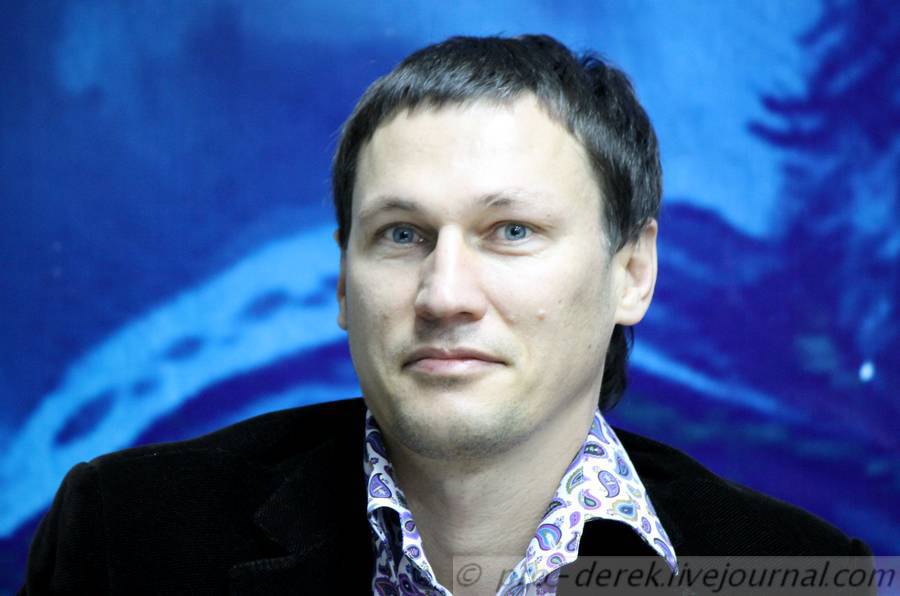1. Early Life and Background
Oleg Saitov was born on May 26, 1974, in Novokuybyshevsk, located in the Samara Oblast of the Russian SFSR, then part of the Soviet Union. His family background reflects the diverse ethnic composition of the region; his father was a Volga Tatar, while his mother was of ethnic Russian descent. From an early age, Saitov embarked on a path in boxing, developing his skills and preparing for a distinguished amateur career. He represented the Trade Union Sports Club from Zhigulevsk during his competitive years. During his competitive years, Saitov stood at 5.8 ft (1.78 m) and weighed 152 lb (69 kg).
2. Amateur Boxing Career
Oleg Saitov embarked on a highly successful amateur boxing career, primarily competing in the welterweight division. His journey through the amateur ranks was marked by consistent performance and a methodical progression that saw him rise to the pinnacle of international boxing. He developed a reputation for his technical prowess and strategic approach in the ring, distinguishing him from many of his contemporaries.
2.1. World and European Championships
Saitov demonstrated his talent on the world and European stages, earning multiple medals in prestigious championships.
At the World Amateur Boxing Championships, he secured:
- A bronze medal in 1993 in Tampere, competing in the light welterweight category.
- A silver medal in 1995 in Berlin, moving up to the welterweight division.
- A gold medal in 1997 in Budapest, maintaining his dominance in the welterweight class.
His achievements at the European Amateur Boxing Championships include:
- A bronze medal in 1996 in Vejle, in the welterweight division.
- A gold medal in 1998 in Minsk, showcasing his continued excellence.
- Another gold medal in 2004 in Pula, further solidifying his status as a top European boxer.
2.2. Olympic Participation and Achievements
Oleg Saitov is renowned for his remarkable Olympic career, participating in three consecutive Summer Games and securing a medal in each. His consistent performance at the highest level of amateur boxing underscores his exceptional skill and dedication. He competed in the welterweight division in all three Olympic appearances.
2.2.1. 1996 Atlanta Olympics
At the 1996 Summer Olympics in Atlanta, Oleg Saitov claimed his first Olympic gold medal in the welterweight division. His path to victory included a series of dominant performances:
| Round | Opponent | Country | Score |
|---|---|---|---|
| Round of 32 | Cahit Sume | Turkey | PTS (11-1) |
| Round of 16 | Ho-Jo Bae | South Korea | PTS (9-5) |
| Quarterfinal | Kamel Chater | Tunisia | PTS (9-3) |
| Semifinal | Daniel Santos | Puerto Rico | PTS (13-11) |
| Final | Juan Hernandez Sierra | Cuba | PTS (14-9) |
2.2.2. 2000 Sydney Olympics
Saitov successfully defended his title at the 2000 Summer Olympics in Sydney, securing his second consecutive Olympic gold medal. His impressive showing led to him being awarded the Val Barker Trophy for the most outstanding boxer of the tournament, an honor given regardless of weight class.
| Round | Opponent | Country | Score |
|---|---|---|---|
| Round of 16 | Francisco Calderon | Colombia | PTS (15-1) |
| Quarterfinal | Ruslan Khairov | Azerbaijan | PTS (10-10; 55-47) |
| Semifinal | Dorel Simion | Romania | PTS (19-10) |
| Final | Serhiy Dotsenko | Ukraine | PTS (24-16) |
2.2.3. 2004 Athens Olympics
Oleg Saitov concluded his Olympic career at the 2004 Summer Olympics in Athens by winning a bronze medal. Despite not reaching the final, his third consecutive Olympic medal underscored his enduring presence at the elite level of international boxing.
| Round | Opponent | Country | Score |
|---|---|---|---|
| Round of 32 | Ait Hammi Miloud | Morocco | PTS (30-15) |
| Round of 16 | Mohamed Hikal | Egypt | PTS (18-17) |
| Quarterfinal | Sherzod Husanov | Uzbekistan | PTS (22-14) |
| Semifinal | Bakhtiyar Artayev | Kazakhstan | Lost PTS (18-20) |
3. Retirement and Later Life
Following his successful amateur career, which culminated with his bronze medal at the 2004 Athens Olympics, Oleg Saitov retired from competitive boxing. Information regarding his activities and public life after retirement is not extensively detailed in the provided sources.
4. Legacy and Assessment
Oleg Saitov's career marks him as one of the most distinguished figures in Russian amateur boxing history. His consistent performance at the highest levels of international competition, including the Olympic Games and World and European Championships, defines his legacy.
4.1. Sporting Impact and Recognition
Saitov's impact on Russian boxing is profound, primarily through his unprecedented success in the welterweight division. Winning two consecutive Olympic gold medals in 1996 and 2000, along with a bronze in 2004, places him among an elite group of multi-medalist Olympic boxers. His reception of the Val Barker Trophy at the 2000 Sydney Olympics, recognizing him as the tournament's most outstanding boxer, further highlights his exceptional skill and sportsmanship. This prestigious award is a testament to his technical mastery and strategic brilliance in the ring. Beyond his Olympic triumphs, his gold medals at the 1997 World Amateur Championships and the 1998 and 2004 European Championships demonstrate his sustained dominance throughout his career. Saitov's achievements have served as an inspiration for younger generations of Russian boxers, cementing his status as a legendary figure in the sport.
